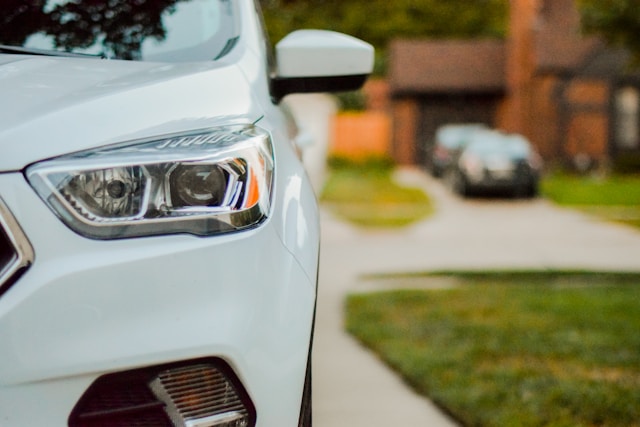Summary
In today’s rapidly evolving world of property management and home safety, driveway insurance has emerged as an essential coverage for many homeowners. This comprehensive article dissects the intricacies of driveway insurance—from what it is and why it’s critical to how it functions, key coverage features, and tips for selecting the best policy
Whether you’re a homeowner managing a busy household or simply looking to safeguard your valuable outdoor spaces, understanding driveway insurance is pivotal in protecting your investment.
Key Takeaways
- Understanding driveway insurance and its role in modern home protection.
- Insight into common risks and coverage options that go beyond traditional homeowners insurance.
- Detailed guidance on how to choose an ideal policy. Learn about maximizing your coverage
- Tips on preventive measures that can reduce liability and insurance costs.
Additional Resources
For expert advice on insurance claims and maximizing compensation, visit ilastia.com.
Introduction

Driveways are more than just entry points for your vehicles; they form an integral part of your home’s aesthetics and functionality. As urban development increases and vehicle usage becomes more frequent, the potential for accidents, damages, and liabilities associated with driveways has grown significantly. Enter driveway insurance—a specialized form of coverage designed to address these specific risks. This article explores every facet of driveway insurance, explains why it’s becoming a must-have, and how homeowners can leverage it to protect their properties effectively.
The increasing popularity of driveway insurance is partly driven by the recognition that traditional homeowners insurance policies often leave gaps in coverage when it comes to outdoor structures and paved areas. With rising repair costs and liability concerns, it makes sense for homeowners to consider a dedicated policy that fortifies their financial security. In the sections that follow, we dive deep into the concept of driveway insurance, its benefits, and actionable tips for obtaining the right coverage.
What Is Driveway Insurance?
Driveway insurance is a specific type of liability and property damage coverage designed to protect homeowners from potential risks and damages associated with their driveways. Unlike standard homeowners insurance, this coverage focuses on damage to the driveway itself, liability related to accidents occurring on the driveway, and in some cases, incidents involving parked vehicles.
Key Features of Driveway Insurance:
- Property Damage Protection
Driveway insurance covers the repair or replacement of your driveway if it sustains damages due to accidents, natural events (like flooding or freeze-thaw cycles), or wear and tear that isn’t included under standard policies. - Liability Coverage
This type of insurance shields homeowners from liability if a visitor is injured on their driveway. It extends to medical expenses and legal fees in the event a claim is filed. - Coverage for Accessories and Adjacent Areas
In many cases, driveway insurance may also extend to cover pathways, adjacent landscaping, and other outdoor installations connected to the driveway.
For further detailed explanations and comparative studies on insurance coverage, you can check out this comprehensive guide on Investopedia.
Why Driveway Insurance Is Becoming a Must-Have
Increased Liability Risk

With an increase in both traffic congestion and the number of vehicles in residential areas, driveways have inherited unique liabilities. A minor mishap—whether caused by a slip or vehicle collision—can lead to costly repairs and medical bills for injuries. This type of liability is not typically covered by standard homeowners insurance.
Recent studies indicate that accidents occurring on driveways have risen by over 20% in the last decade. Factors contributing to this increase include:
- Enhanced vehicle usage in suburban areas.
- Aging infrastructure.
- Weather-related wear and tear, particularly in regions prone to severe climates.
Gaps in Traditional Homeowners Insurance
Most standard homeowners insurance policies are primarily designed to cover the structure and its immediate contents. Driveways, pavements, and other external features may sometimes be overlooked or only partially covered. Full coverage for these areas often requires riders or additional policies, thereby leaving a significant financial gap for homeowners.
For a broader understanding of homeowners insurance gaps and potential solutions, visit NerdWallet.
Rising Repair Costs
Maintenance and repair costs for driveways are escalating due to urbanization and increased material costs. Projects that once required modest budgets now demand significant repair or complete replacement. Without the appropriate insurance, homeowners may face substantial out-of-pocket expenses.
Evolving Climate and Natural Disasters
Changes in weather patterns and the frequency of extreme weather events, such as heavy rains, snowstorms, and flooding, have added unpredictability to outdoor maintenance. These unpredictable events can degrade driveways quicker than anticipated, further exposing homeowners to risks.
Detailed Coverage Options and Add-Ons
Understanding the specifics of what your driveway insurance covers is crucial. Policies can vary significantly between insurers, and some key add-ons may include:
1. Comprehensive Property Damage
Some driveway insurance policies not only cover structural damages but also extend to repair costs for damage inflicted on adjacent areas, including sidewalks and landscaping features. This comprehensive approach means you have broader protection during severe weather events or unexpected accidents.
2. Third-Party Liability and Legal Costs
Third-party liability is a critical component in driveway insurance. In the event someone is injured while using your driveway, this component can cover the expenses for legal representation, settlements, and medical bills, shielding you from potential financial ruin.
3. Maintenance and Accident Prevention Incentives
Certain insurers offer discounts or incentives for homeowners who undertake regular maintenance or install safety measures on their driveways. These incentives can include lower premiums for installing improved drainage systems, anti-slip surfaces, or proper lighting.
For more examples of safety measures and maintenance tips, check out this practical guide on HomeAdvisor.
4. Weather and Natural Disaster Protection

Policies may have specific clauses detailing how natural disasters affect coverage. Given the increasingly erratic patterns of weather, insurers are revising their terms to include protective measures during flooding, ice storms, or hurricanes.
How to Choose the Best Driveway Insurance Policy
Selecting the right driveway insurance policy can be a daunting task. However, breaking it down into simpler steps can demystify the process and ensure you make a well-informed decision. Consider these essential factors:
Research and Compare Multiple Providers
Before committing to a policy, it’s imperative to compare the offerings from various insurers. Look for coverage that not only meets your immediate needs but also provides long-term protection as property values and local conditions change.
- Tip: Use comparison websites like Policygenius to evaluate the pros and cons of different insurance providers.
Assess the Specific Coverage Details
Make sure you read the fine print of each policy. Consider what is explicitly covered versus what may be excluded. For instance, inquire if wear and tear is included, or if there are additional riders required for natural disaster coverage.
Evaluate Customer Reviews and Claim History
Customer feedback and insurers’ histories with claim settlements can offer deep insights into their reliability and customer service standards. A policy might look attractive on paper but may come with delays or complications when filing a claim.
Consider Local Risks and Weather Patterns
Different regions have distinct risk profiles. Areas prone to harsh winters, flooding, or heavy snowfall might require policies with robust natural disaster coverage. Knowing your local environmental risks is essential in choosing the right add-ons.
For additional tips on researching insurance providers, consider exploring articles on Forbes and Hire The Best Car Insurance Lawyer and Maximize Your Compensation
Common Questions About Driveway Insurance
What Is the Typical Cost of Driveway Insurance?

Costs vary widely depending on several factors such as the size, condition, and material of your driveway, as well as geographical location and local risk factors. On average, premiums may range from moderate to high. For a personalized quote, contact insurers or use online quoting tools available on insurance websites.
Is Driveway Insurance Mandatory?
While not legally required, it is highly recommended. The increasing liability and potential repair costs associated with driveway damages make it a prudent investment in safeguarding your property.
Can I Bundle Driveway Insurance with Homeowners or Auto Insurance?
Many insurers offer bundling options that include driveway insurance with other home or auto policies for a discounted premium. Bundling can simplify your coverage while ensuring comprehensive protection for your property.
How Are Claims Processed for Driveway Incidents?
The claims process involves evaluation by insurance adjusters who determine the extent of damage or liability. Transparency in your policy can help streamline the process, reducing potential disputes and ensuring prompt payouts.
For more clarification on the claims process, the National Association of Insurance Commissioners offers useful insights.
Prevention and Maintenance Tips to Lower Insurance Costs
Being proactive in maintaining your driveway is not only a smart financial decision but also enhances safety and prolongs the lifespan of your property. Here are some recommended practices:
Regular Maintenance and Inspections
- Scheduled Inspections: Regularly inspect your driveway for cracks, potholes, or any signs of deterioration. Early detection can prevent minor issues from escalating into costly repairs.
- Professional Assessments: For older driveways, consider biannual checks by professionals. Their expertise can identify structural issues that might not be visible to untrained eyes.
Implement Safety Enhancements
- Anti-Slip Treatments: Applying anti-slip coatings or sealants can significantly reduce the risk of falls, which is a major factor in liability claims.
- Improved Drainage: Ensuring proper drainage systems are in place can guard against water accumulation, preventing erosion and other structural damages.
- Lighting and Visibility: Installing adequate lighting around your driveway is not just a deterrence for potential accidents—it also adds an extra layer of security during nighttime.
Landscaping and Surrounding Areas
Maintaining the landscaping around your driveway not only improves aesthetics but also prevents debris from accumulating and damaging the surface. Trim overhanging trees or plants to discourage excessive moisture buildup.
For detailed landscaping tips and ideas, refer to resources such as Better Homes & Gardens.
Insurance Trends and the Future of Driveway Coverage
Evolution of Insurance Needs
As technology advances and climate factors shift, the insurance industry is continually adapting. With smart technology integration and data analytics, insurers are now better equipped to custom-tail policies that match the unique needs of different communities and properties.
Technological Integration
Insurers are increasingly using:
- Smart Sensors: Devices that monitor driveway conditions in real time can help prevent incidents by alerting homeowners to potential hazards.
- Data Analytics: Big data is being deployed to predict weather patterns, assess risks more precisely, and streamline claims processes.
Consumer Awareness and Demand
Consumer demands for transparency, immediate claim processing, and custom coverage options are reshaping the insurance landscape. As homeowners become more knowledgeable about potential risks, demand for comprehensive coverage like driveway insurance is only expected to rise.
For an in-depth look at technological trends in insurance, explore articles on TechCrunch.
Tips for Filing Claims Successfully
Even with the best preventive measures, accidents can occur. Here are some tips for navigating the claims process efficiently:
Document Everything
Immediately after an incident, document the damage extensively. Take photographs, collect witness testimonies if applicable, and keep records of all interactions with contractors or repair services.
Understand Your Policy
Before a claim arises, ensure you fully understand your driveway insurance policy. Being aware of what is covered, the deductibles, and claim submission protocols will prepare you for a smoother process.
Maintain Open Communication with Your Insurer
Promptly notify your insurance provider after a loss and maintain a detailed log of all communications. Clear, consistent communication can expedite the claim review process.
For more guidance on filing insurance claims, consider reading this guide by the Insurance Information Institute.
Real-World Examples: Stories from Homeowners
Case Study 1: Weather-Related Damage
A homeowner in a region with harsh winters experienced significant driveway damage due to freeze-thaw cycles. Their driveway insurance not only covered the repair of fissures and potholes but also provided additional funds for improved drainage installation, which significantly reduced future risks. This case underscores the importance of proactive maintenance combined with adequate insurance coverage.
Case Study 2: Liability Claim Success
Another example involves a homeowner who faced a liability claim after a visitor slipped on a wet, untreated driveway surface. The homeowner’s comprehensive policy covered legal fees and medical expenses for the injured party, ultimately saving the homeowner from a potential financial burden. Such real-world stories highlight why driveway insurance is evolving into a must-have coverage option.
Final Thoughts and Summary
In conclusion, driveway insurance represents a significant shift in how homeowners protect a critical component of their property. With rising repair costs, increased liability risks, and the unpredictability of modern weather patterns, having specific coverage for your driveway is no longer optional—it’s a strategic approach to comprehensive risk management.
This in-depth guide has discussed:
- The essential features and benefits of driveway insurance.
- Why traditional homeowners policies may fall short in protecting outdoor spaces.
- How to choose, maintain, and optimize your policy to best suit your needs.
- Preventive measures that can help minimize risks and reduce overall insurance costs.
As the insurance landscape continues to evolve, understanding and investing in specialized insurance such as driveway coverage is a proactive step in protecting your valuable home assets. For further reading and an expansive view on emerging insurance trends, visit trusted resources like Forbes and Investopedia.
Stay informed, remain proactive, and ensure that your home investment is safeguarded against the unforeseeable challenges of today’s dynamic environment.
Key Takeaways Revisited
- Driveway insurance is specialized coverage that protects your driveway from damage and liability, addressing gaps left by standard homeowners insurance.
- The growing incidence of accidents and weather-related damages underscores the need for this type of insurance.
- Choosing the right policy involves careful research, understanding of risks, and continuous maintenance and safety improvements.
- Proactive action, including regular inspections and strategic upgrades, can not only lower insurance premiums but also ensure your property remains secure.
- Real-world examples demonstrate the tangible benefits and financial relief provided by appropriate driveway insurance coverage.
Armed with the knowledge from this article, you are now better equipped to make informed decisions that will protect your property and enhance your overall financial security. Embrace the change, and invest wisely in driveway insurance—your future self will thank you.

